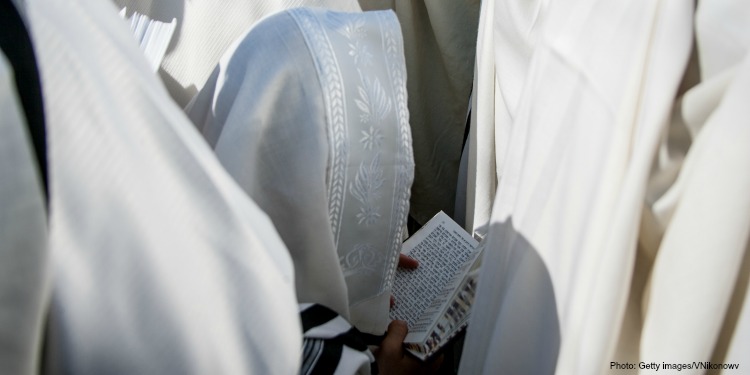Our Guide Forever
The Fellowship | August 26, 2018

For this God is our God for ever and ever:
he will be our guide even to the end. — Psalm 48:14
Prayer in Judaism is defined as “the work of the heart,” which profoundly changes the nature of prayer from one of entreating God to an act that transforms who we are – not what God does. Our devotions throughout this month are focused on different facets of prayer and what lessons we can learn about the power of our prayers. For more inspirational teachings about prayer, download our free booklet, The Work of the Heart.
Years ago, a good friend of mine toured Poland in order to witness the destruction of the Holocaust. One thing that struck him was an inscription on the walls of what was once a vibrant synagogue. On the wall was a beautifully hand-painted prayer, the Prayer for the Martyrs. Called Av HaRachamim, it is a Jewish memorial prayer written in the late 11th or early 12th century after the destruction of the Ashkenazi communities around the Rhine River during the First Crusade. My friend recalled that it sent chills down his spine knowing that as Jews read this prayer decades earlier, they had no clue that they would become the primary focus of this prayer for decades to come.
Psalm 48 ends with the following verse: “For this God is our God for ever and ever: he will be our guide even to the end.” History is strewn with the blood of those who refused to abandon God even in the face of death.
I am reminded of three Jewish boys from the Bible – Shadrach, Meshach, and Abednego, who were called to sacrifice their lives for the sake of God. These boys were exiled from Israel and taken to Babylon where King Nebuchadnezzar had created a large golden idol that everyone was required to worship. Shadrach, Meshach, and Abednego were faithful to the God of Israel and refused to bow down to the idol. When Nebuchadnezzar found out about the boys’ refusal, he threatened to throw them into a fiery furnace to be burned alive.
The boys replied, “King Nebuchadnezzar, we do not need to defend ourselves before you in this matter. If we are thrown into the blazing furnace, the God we serve is able to deliver us from it, and he will deliver us from Your Majesty’s hand” (Daniel 3:16-17). Shadrach, Meshach, and Abednego were not intimidated by anyone or anything. They knew that they served the supreme Lord who could recue them from any situation.
Here is the most powerful part of the boys’ reply. They said, “But even if he does not, we want you to know, Your Majesty, that we will not serve your gods . . .” (Daniel 3:18). Shadrach, Meshach, and Abednego proclaimed that even if God did not come to their rescue and they had to die, they would still be obedient to the Lord. They were willing to sacrifice their lives for their God.
Friends, thankfully, most of us are not called to sacrifice our lives for God. In fact, God prefers that we sanctify Him through living, not by dying. However, we must be willing to sacrifice for our God. If holy people throughout history were willing and able to give up their very lives for God, certainly we can give up some of our money, possessions, pride, comfort, or time.
God is our eternal guide, and we must be willing to follow Him in obedience come what may.


